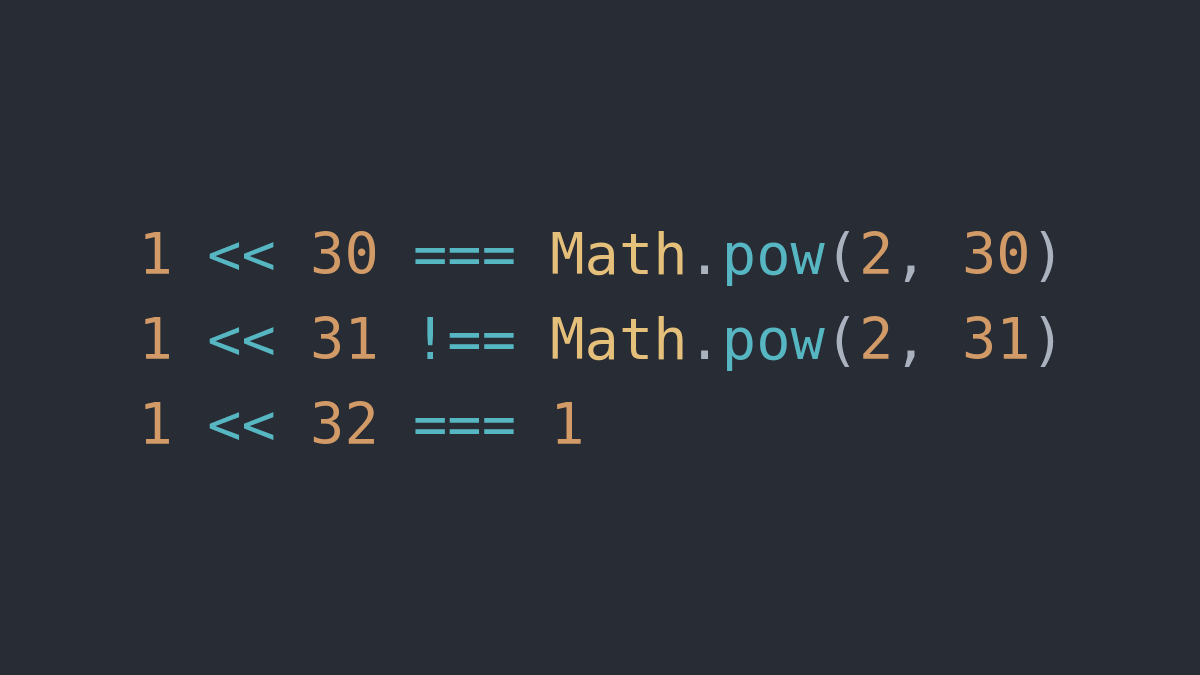
Bitwise left shift operator (<<) is used instead of power of 2 (2n) operator on integer variable. This idiom may lead to strange result in JavaScript.
Bitwise operators in JavaScript converts their operands to signed 32-bit integer, not 64-bit integer (also known as long in Java, long long in C language).
Therefore, 1 << n is not the same as Math.pow(2, n) if n > 31.
Not only the shift operator but also all the bitwise operators such as and(&), or(|), not(~), XOR(^) limited to process only 32-bit operands.
Solution
Mathematical operations
You would better to use Math.pow() or ** (ECMAScript 2016) than << if you concern calculation.
Note that the safe integer range in JavaScript is -(253 - 1) inclusive to (253 - 1) inclusive since the Number type uses IEEE-754 64-bit floating point number representation.
64-bit Long (long.js)
You may use long npm package if you concerned about only 64-bit wide integer.
Bitmap array
If you want to handle bit array with size > 64, you would better consider bitmap array, also known as bit vector.
There are several npm packages about bit array such as bitwise, bitset, fast-bitset, bit-vector. You may choose as you need.